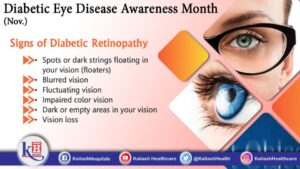
A common question is, why do I have bad vision? It is a common condition, but it isn’t always obvious. The causes are many and varied. Refractive errors, such as myopia, hyperopia, or presbyopia, are the main culprits. These eye problems lead to blurred vision, which is a pain in the eye. It is important to get a proper diagnosis.
The most common cause of poor vision is refractive errors. These problems occur when the eye doesn’t focus light properly onto the retina. While you may have perfect 20/20 vision, others may need corrective lenses. If you suffer from one of these conditions, consult with a doctor to determine whether you need corrective lenses. You may find that the problem is genetic. If you’re in your forties, your eyes are too large or too small.
In some cases, the problem is genetic. Researchers at the Cleveland Clinic have found that some eye diseases run in families. For example, people with certain genetic markers are 10 times more likely to have refractive errors than people without the gene. However, other factors are more likely to affect your eye health. Some environmental factors such as poor diet, smoking and stress can negatively affect your vision. A specialist can prescribe the best treatment for your particular condition.
The shape of your eyes can also lead to poor vision. Many people don’t bother getting a professional diagnosis of presbyopia. Instead, they just go out and buy over-the-counter reading glasses that don’t solve the problem. Another common cause of blurred vision is astigmatism. Astigmatism is the result of the shape of the cornea. Some people suffer from minor changes, while others suffer from severe vision loss.
Some people have more than one type of eye disease. Most people are nearsighted or farsighted or have trouble reading fine print. Most people do not seek professional help and prefer to purchase over-the-counter reading glasses. Astigmatism is another common cause of blurry vision. The shape of the cornea is responsible for this condition. This can lead to blurry vision, which can be painful and worsening.
Some eye diseases are hereditary, but some are caused by environmental factors. The most common visual impairments in older people are related to genetics. Some people have a family history of refractive errors, and some of these people have genetic markers that allow them to inherit these conditions. If the disease is inherited, it can be difficult to determine the exact cause. Other factors also affect vision, including the size of the eye and the type of lens used for corrective lenses.

The size and shape of the eyes are other common causes of vision problems. The size of your eye affects your ability to see at different distances. For example, people with 20/20 vision have round eyes. On the other hand, people with poor eyesight or nearsightedness have oval or other shaped eyes. It’s easy to tell which of these factors is causing your blurred vision. On the site https://www.diariolarepublica.org.mx/ you will learn about a few simple ways to correct your eyesight.
Refractive errors are a common cause of poor vision. While aging can affect overall eye health, certain environmental factors can lead to vision problems. The most common cause is cataract, which causes clouding of the lens. It can affect one or both eyes and affects how you see objects. At this stage, the iris will begin to harden and it will be harder for you to focus, which will affect the quality of your vision.
Regardless of the cause of your vision problem, there are many possible causes. Autoimmune conditions are the most common, and some people have no symptoms at all. If you have an autoimmune disease, you may have poor vision due to inflammation of the lens of your eye. Often these symptoms are caused by a virus that causes the body to produce antibodies that attack cells in the eyes. Hence, it is important to get a correct diagnosis from an optometrist.
Pregnancy is a common cause of poor vision. This cannot be the cause of preeclampsia. The condition causes high blood pressure and protein in the urine. It occurs in women who have not previously had high blood pressure. During pregnancy, the condition is dangerous and can cause blurred or distorted vision. It can be difficult to detect, so it’s important to seek medical attention and be familiar with a proven drug Lutevid
if you notice a change in vision.
